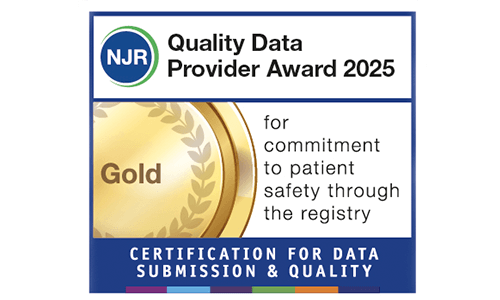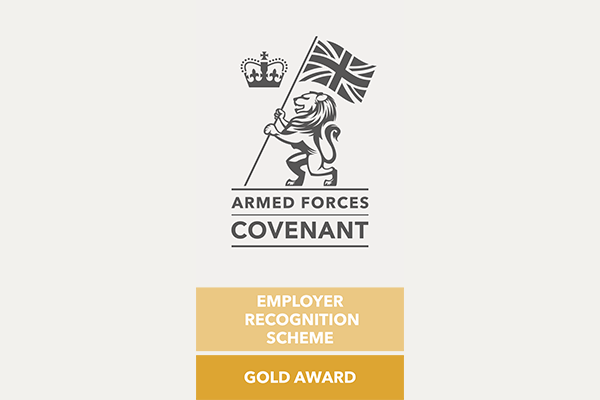Dupuytren’s Contracture Treatment (Dupuytren’s Fasciectomy)
Dupuytren's contracture, also known as Dupuytren's Disease, is a progressive condition that causes one or more fingers to curl inward toward the palm. It can significantly impact hand function and daily activities.
At Ramsay Health Care, we offer expert diagnosis and advanced surgical treatment, including Dupuytren’s fasciectomy, to help restore hand function and improve your quality of life.
What is Dupuytren’s Contracture (also known as Dupuytren’s Disease)?
Dupuytren's contracture is a hand condition where connective tissue (called fascia) in the palm gradually thickens and tightens. This causes one or more fingers – most commonly the ring and little fingers – to curl towards the palm. Over time, these fingers can become permanently bent, making it difficult to carry out everyday tasks.
The condition typically develops slowly over years and can affect one or both hands. It usually begins with small, firm lumps (nodules) in the palm. These may develop into cords of thickened tissue under the skin, which gradually pull the fingers downward.
Dupuytren's contracture is sometimes mistaken for trigger finger. However, trigger finger is a different condition entirely, caused by inflammation in the tendons rather than the fascia. It requires a different treatment known as trigger finger release.
What are the symptoms of Dupuytren’s Disease?
As Dupuytren's contracture can take months to years to develop, you may not notice any symptoms for a time. The disease can affect people differently, but usually occurs in the following three stages:
Stage 1: Nodules
Small, firm lumps form in the palm, often painless but sometimes tender.
Stage 2: Cords
Thickened bands of tissue develop, running from the palm into the fingers.
Stage 3: Contracture
The fingers curl inward and may become permanently bent or difficult to straighten.
Not everyone progresses through all three stages, and the severity can vary from person to person.
Other symptoms of Dupuytren's Contracture
In addition to lumps and cords, Dupuytren's contracture can also cause a range of other associated symptoms in your hand, including:
Which fingers are affected by Dupuytren's Contracture?
Dupuytren's contracture most commonly affects the ring and little fingers, though it can affect others. It may affect just one finger, multiple fingers, or both hands, often to varying levels of severity.
What are the causes of Dupuytren’s Contracture?
The exact cause of Dupuytren’s contracture is not fully understood. However, several risk factors are known to increase the likelihood of developing the condition:
Having one or more of these risk factors can increase your chances but it doesn’t mean you will definitely develop the condition.
How is Dupuytren’s Contracture diagnosed?
Dupuytren’s contracture is usually diagnosed during a straightforward physical examination by a GP or hand specialist.
The doctor will check for:
-
Bent or curled fingers
-
Lumps or cords in the palm
-
Skin puckering or tightening
-
Reduced ability to flatten your hand on a surface
Imaging tests like X-rays or MRI scans are rarely required.
Dupuytren’s Contracture Treatment
Not everyone with Dupuytren’s disease needs treatment. However, if the condition worsens and starts to interfere with your hand function, treatment options are available.
Steroid and collagenase injections
Earlier stages of Dupuytren's contracture can sometimes be treated with injections into the affected area, usually either steroid injections or collagenase injections (an enzyme that can soften hardened fascia). Injections can help soften or break down the cords and may slow the condition’s progression.
Dupuytren's contracture surgery
Dupuytren's contracture surgery is typically recommended for more advanced cases. It’s also recommended when non-surgical treatments are no longer effective or when finger movement becomes severely restricted.
The most common types of surgery include:
Needle fasciotomy: A minimally invasive procedure using a needle to divide the cords
Dupuytren’s fasciectomy: Open surgery to remove the affected tissue. Types include:
-
Segmental fasciectomy
-
Regional fasciectomy
-
Dermo fasciectomy
Your Ramsay Health Care specialist will advise you on the most suitable Dupuytren’s contracture operation for your needs.
What does Dupuytren’s surgery involve?
Dupuytren's contracture surgery aims to improve hand function by either breaking up or removing the thickened tissue causing the contracture.
The two main procedures are:
Needle fasciotomy – Involves inserting a fine needle or blade to divide the cords. This is typically done under local anaesthetic and does not usually require an overnight hospital stay. Recovery is usually quicker, but recurrence rates are higher.
Dupuytren’s fasciectomy – Involves removing the thickened fascia via open surgery:
-
Segmental fasciectomy: Short segments of cord are removed
-
Regional fasciectomy: Entire cord removed via a longer incision.
-
Dermo fasciectomy: The cord and the overlying skin are removed, often requiring a skin graft.
Cost of Dupuytren’s Fasciectomy surgery
The cost of Dupuytren’s fasciectomy surgery can vary depending on the complexity of the procedure and your individual treatment plan.
If you're self-funding, Ramsay Health Care offers an all-inclusive Total Care package, with a single, fixed price agreed in advance, with no hidden costs. We also provide flexible finance options to help spread the cost.
Alternatively, your treatment may be covered by private medical insurance. We recommend contacting your provider for written confirmation of cover before proceeding.
If you’re paying for your treatment, Ramsay offer an all-inclusive Total Care package, where a single one-off payment at a pre-agreed price, delivering direct access to all the treatment you need for complete reassurance. You can also spread the cost of your treatment with finance options available.
A dupuytren's fasciectomy surgery may be covered by your medical insurance policy. We advise you to check directly with your insurance provider and get written confirmation before commencing treatment.
Who needs Dupuytren's Contracture surgery?
Dupuytren’s condition is a chronic, progressive disease which worsens over time. In the earlier stages of Dupuytren's disease, non-surgical treatments, like steroid injections, may help reduce symptoms. However, if the condition develops to the extent that you have problems using your fingers, and your Dupuytren's disease is affecting your daily life, surgery is usually recommended.
Surgery for Dupuytren’s contracture is generally recommended if:
● You can no longer place your hand flat on a surface
● Your fingers are increasingly bent
● You’re struggling with daily activities
● The condition is progressing rapidly
Your Ramsay specialist will assess your hand function and talk through whether surgery is the right option for you.
Dupuytren’s Contracture surgery recovery time
Recovery from Dupuytren's surgery varies depending on the procedure type, your individual health, and how well you follow post-operative care. Below is a general timeline for recovery after a Dupuytren’s fasciectomy:
First 1–2 weeks
You’ll typically leave the hospital the day of your procedure, although some patients may require an overnight stay.
For the first week or two, you’ll have some pain and swelling that you’ll treat with rest, prescription medication, and by keeping your hand elevated. Your hand will be dressed and bandaged.
You’ll have stitches, which will typically be taken out after around 10–14 days. You’ll also likely wear a hand splint at night.
You’ll be encouraged to make initial, gentle hand and finger movements to help with your recovery.
3–6 weeks
Your incisions should heal during this period, and pain and swelling will be much reduced.
You’ll likely continue to wear a hand splint at night to help keep your fingers straight.
You’ll begin hand and finger exercises to restore strength and flexibility.
Depending on your job, you may be able to return to work during this time.
7–12 weeks
Any lingering pain or stiffness should continue to ease, and your range of motion and grip strength will continue to improve, especially if you stick to your Dupuytren's contracture surgery rehabilitation.
You should be able to return to normal activities, including hobbies, and should be able to return to a job that involves plenty of hand use.
3–6 months
Whilst most patients will have made significant progress by 12 weeks, full recovery from a Dupuytren's contracture operation – including a full return to strength, flexibility, and range of motion – can take up to six months. You’ll usually continue physiotherapy throughout this period.
Dupuytren’s Contracture Treatment at Ramsay Health Care
At Ramsay Health Care, we provide expert Dupuytren’s contracture treatment, including Dupuytren's fasciectomy, performed by highly experienced hand surgeons in our modern, CQC-registered private hospitals local to you.
We’ll tailor your care to your specific needs, from pre-operative planning to physiotherapy support during recovery. Our flexible appointments and short waiting times mean you can access treatment when it suits you.
Contact us today to book an appointment with an experienced Ramsay hand specialist and explore your personalised treatment options.


